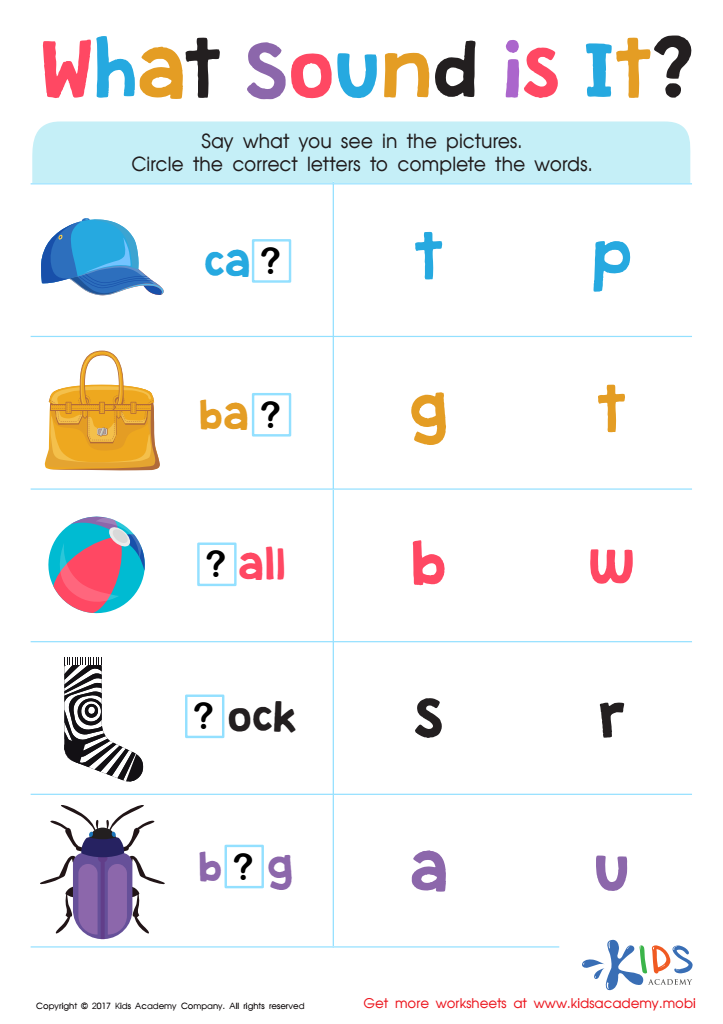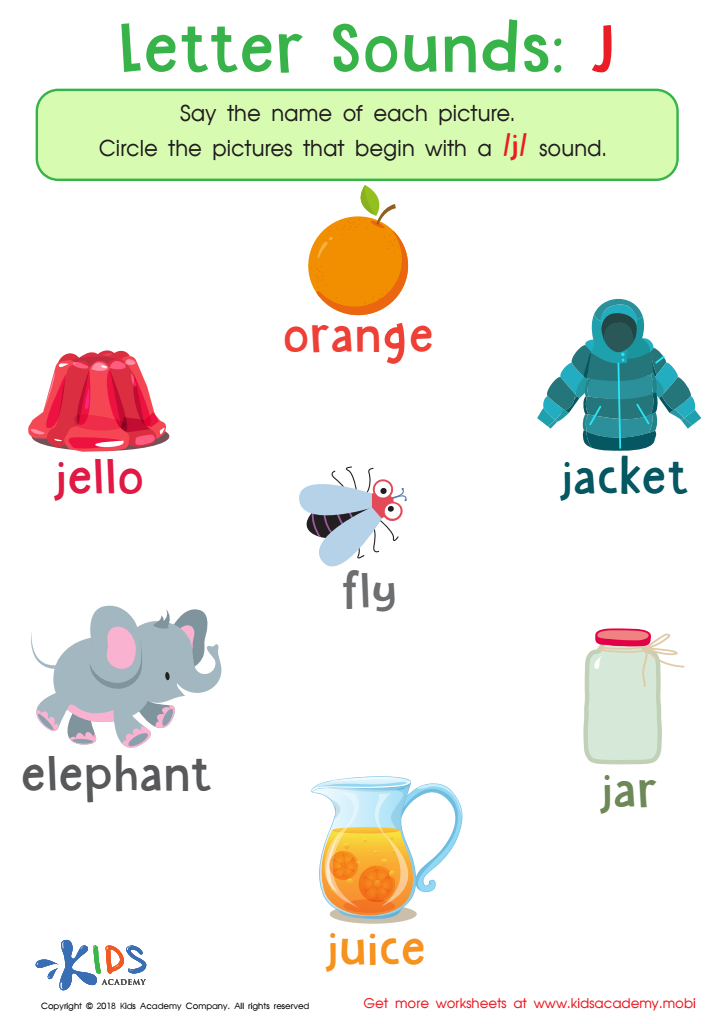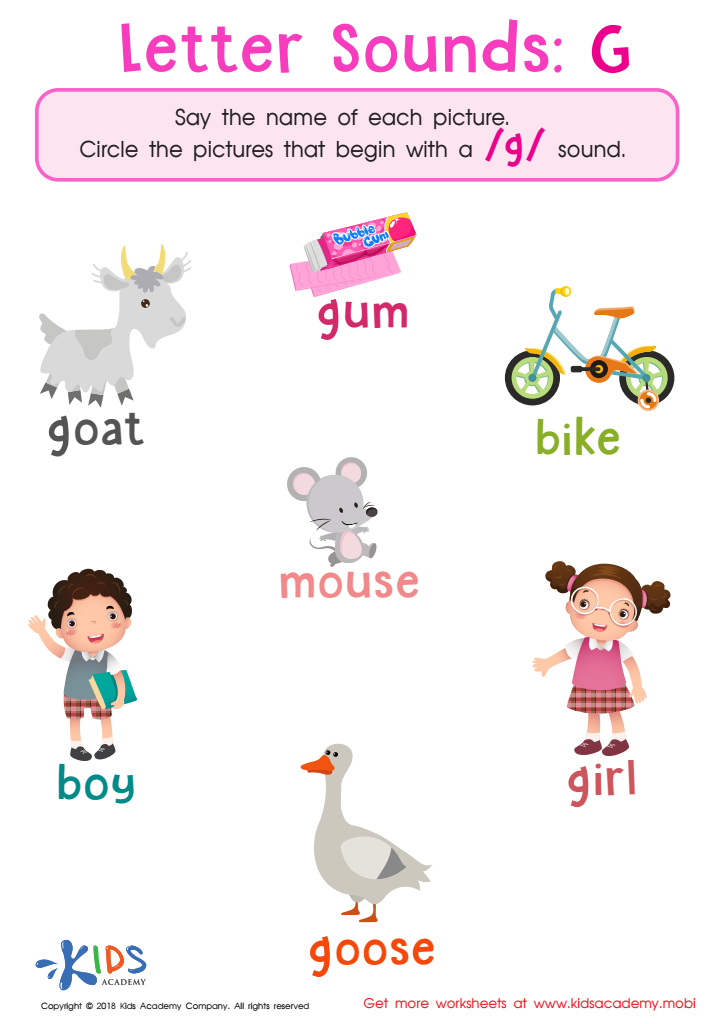Reading skills development Letter Sounds Worksheets for Ages 5-8
3 filtered results
-
From - To
Enhance your child's reading skills with our engaging Letter Sounds Worksheets, specially designed for ages 5-8. Each worksheet offers a fun and interactive way to learn letter sounds, crucial for early literacy development. Tailored to suit young learners, these activities blend play with education, ensuring kids remain excited and motivated. Whether it's matching letters to corresponding images or discovering beginning sounds, our printable worksheets make learning an adventure. Ideal for both classroom and at-home practice, these resources help lay a strong foundation for reading success. Equip your child with essential skills through enjoyable and effective exercises today!


What Sound Is it? Worksheet


Letter Sounds: J Printable Worksheet


Letter G Sounds Worksheet
Developing reading skills and letter-sound relationships between ages 5-8 is crucial, as it sets the foundation for children's literacy. During these formative years, kids transition from recognizing letters to decoding words and comprehending text. Here's why parents and teachers should prioritize this phase:
-
Critical Foundation: Understanding letter sounds, known as phonemic awareness, is the basis for reading. Children who master these skills can decode words, an essential step toward fluent reading.
-
Language Skills: Proficient reading abilities influence broader language skills. As children learn to read, they encounter new vocabulary and sentence structures, enhancing their language comprehension.
-
Academic Success: Reading proficiency is closely tied to academic achievement. Early mastery of letter sounds can lead to better performance in all subjects, not just language arts, by making learning more accessible.
-
Cognitive Development: The process of matching sounds to letters and blending them into words stimulates brain development, improving memory, attention, and critical thinking skills.
-
Confidence and Motivation: Success in reading boosts self-esteem and motivation, encouraging children to read more and enjoy learning.
-
Future Opportunities: Strong literacy skills are foundational for future education and career prospects. Early intervention ensures children are not left behind and have equitable opportunities for success.
Therefore, focusing on reading skills and letter sounds at an early age is fundamental to a child's lifelong learning journey.
 Assign to My Students
Assign to My Students














